-
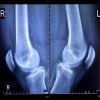 +4 +1
+4 +1What universities can learn from one of science’s biggest frauds
Detailed analysis of misconduct investigations into huge research fraud suggests institutional probes aren’t rigorous enough. By Holly Else.
-
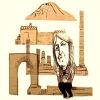 +12 +1
+12 +1The cult of Mary Beard
How a late-blossoming classics don became Britain’s most beloved intellectual. By Charlotte Higgins.
-
 +17 +1
+17 +1How evolutionary biology makes everyone an existentialist
Ethics cannot be based on human nature because, as evolutionary biology tells us, there is no such thing. Questions about what matters, and why, and what exists in the world, are quintessentially philosophical. The answers to many of these questions are informed by how we conceive of ourselves. How has what is often described as the ‘Copernican revolution’ effected by Charles Darwin changed our self-conception? One particularly surprising feature of evolutionary biology is that it lends significant support to existentialism.
-
 +13 +1
+13 +1In defence of the indefensible
Friday was the 23rd of October and the Internet sceptics had a field day mocking one of their favourite punching bags James Ussher (1581 – 1656) Archbishop of Armagh. By Thony Christie.
-
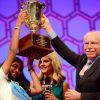 +17 +1
+17 +1How spelling became an ESPN sport
The delightful story of how the Scripps National Spelling Bee found a home on a sports network. By Ann-Derrick Gaillot.
-
 -1 +1
-1 +1Make Your Last Words Counts.
Want to make your dissertation rock the academic world, but don't know how? Read our latest blog article for useful tips and pieces of advice.
-
 +14 +1
+14 +1The Wrongest Profession
How economists have botched the promise of widely distributed prosperity—and why they have no intention of stopping now. By Dean Baker.
-
 +25 +1
+25 +1Handful of “highly toxic” Wikipedia editors cause 9% of abuse on the site
We've all heard anecdotes about trolling on Wikipedia and other social platforms, but rarely has anyone been able to quantify levels and origins of online abuse. That's about to change. Researchers with Alphabet tech incubator Jigsaw worked with Wikimedia Foundation to analyze 100,000 comments left on English-language Wikipedia. They found predictable patterns behind who will launch personal attacks and when.
-
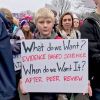 +34 +1
+34 +1Scientists Are Rallying and Marching on Washington
As President Trump’s administration continues to cut communication, funding, and support for science-related government agencies, more and more scientists are banding together to protest. Initially, many took to Reddit to discuss their political ideas and concerns, but that conversation quickly grew into much more. The scientists are now a group known as Scientists March on Washington, and on April 22, 2017, they and those in support of scientific progress will, in fact, march on Washington.
-
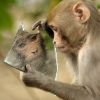 +16 +1
+16 +1Science falling victim to ‘crisis of narcissism’
Cut-throat atmosphere in world-class labs and conferences closer to House of Cards than Big Bang Theory, says Swiss academic. By Hannah Devlin.
-
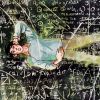 +45 +1
+45 +1What Does Any of This Have To Do with Physics?
Einstein and Feynman ushered me into grad school, reality ushered me out. By Bob Henderson.
-
 +21 +1
+21 +1Without tenure, professors become terrified sheep
"But having lived through the decline of tenure, I can see clearly that universities in which the majority of the faculty feel unsafe in terms of job security become places where no one feels safe to do anything that might risk upsetting someone." By Alice Dreger.
-
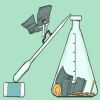 +23 +1
+23 +1How a happy moment for neuroscience is a sad moment for science
Systems neuroscience is celebrating a landmark, but one that shows the way we do science is broken.
-
 +31 +1
+31 +1Positive link between video games and academic performance, study suggests
Children who play online video games tend to do better in academic science, maths and reading tests, according to an analysis of data from over 12,000 high school students in Australia. The study found that students who played online games almost every day scored 15 points above average in maths and reading tests and 17 points above average in science. However, the study’s methodology cannot prove that playing video games were the cause of the improvement.
-
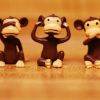 +17 +1
+17 +1The Weird and Wonderful World of Academic Twitter: Accounts that mock, self-ridicule and bring a smile to academia.
An overview of the humorous accounts that aim to pull back the curtain on the Ivory Tower and share its oddities, culture and inconsistencies. Despite the silliness, the following accounts often discuss issues rarely touched on in the academic community. These accounts offer a lighthearted take on a business that takes itself too seriously and for that, we are immensely grateful.
-
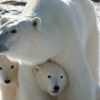 +41 +1
+41 +1World's southernmost polar bears losing almost a fifth of their body weight as ice shrinks: study
The world’s southernmost population of polar bears has already lost significant amounts of body weight after decades of shrinking sea ice with breeding females suffering the most, says new research from the Ontario government. “They’re in poorer condition now than they were in the 1980s,” said Martyn Obbard, of the province’s natural resources department, one of the co-authors of the paper published by the National Research Council.
-
 +3 +1
+3 +1A spiritual successor to Aaron Swartz is angering publishers all over again
Stop us if you’ve heard this before: a young academic with coding savvy has become frustrated with the incarceration of information. Some of the world's best research continues to be trapped behind subscriptions and paywalls. This academic turns activist, and this activist then plots and executes the plan. It's time to free information from its chains—to give it to the masses free of charge. Along the way, this research Robin Hood is accused of being an illicit, criminal hacker.
-
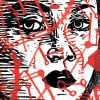 +38 +1
+38 +1She Wanted to Do Her Research. He Wanted to Talk ‘Feelings’
For women in science, part of the job can mean dealing with unwanted sexual attention. By A. Hope Jahren.
-
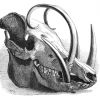 +7 +1
+7 +1The Future of Academic Style
Why Citations Still Matter in the Age of Google. By Kathleen Fitzpatrick.
-
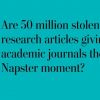 +27 +1
+27 +1This student put 50 million stolen research articles online. And they’re free.
Alexandra Elbakyan is challenging the multibillion-dollar academic publishing industry.
Submit a link
Start a discussion




















